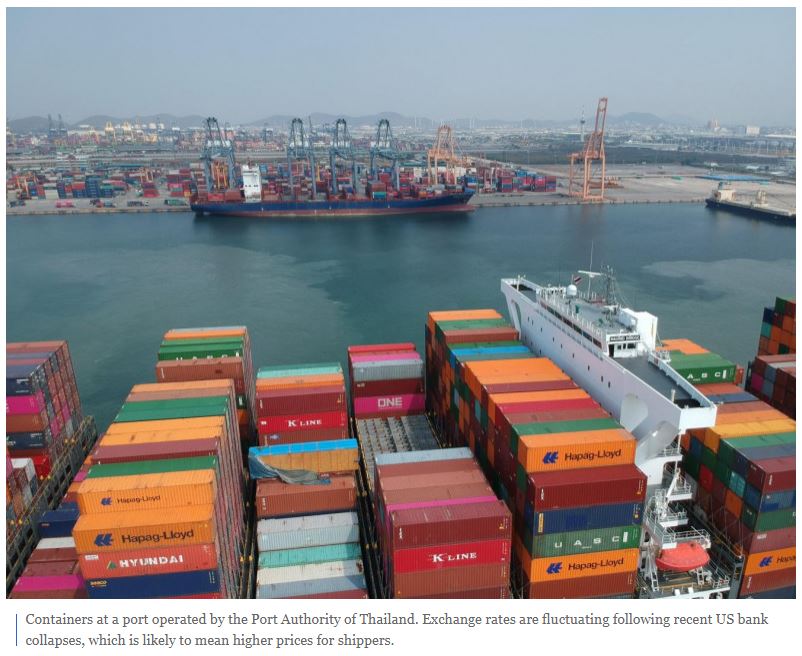Thais urged to monitor rates
Thai exporters and importers are being advised to closely monitor the exchange rate and develop appropriate strategies to cope with the impact of short-term foreign exchange fluctuations.
According to Poonpong Naiyanapakorn, director-general of the Trade Policy and Strategy Office (TPSO), the office expects exporters to be affected by volatile exchange rates caused by the impact of recent US bank collapses.
This should rattle money and capital markets in the US, prompting investors to move money to new markets including Thailand, resulting in a weaker US dollar and a stronger baht, he said.
As of March 13, the baht had strengthened to 34.56 per dollar, compared with 35.08 per dollar on March 10. This will result in higher export prices for shippers, but could benefit importers, particularly for energy products.
TPSO plans to monitor the situation to determine if there will be a continued impact on the US labour market and economy, which could affect Thailand’s exports given that the US is a major market for shipments, making up 16% of Thai exports, said Mr Poonpong.
“The impact is predicted to be limited, not as severe as the US subprime crisis in 2008, which had widespread effects on financial and capital markets as well as the economy,” he said.
“The US subprime crisis was initially caused by loan extensions to borrowers without collateral, resulting in a ripple effect for economies of many countries with links to the US economy, including Thailand. However, the Silicon Valley Bank [SVB] crisis has specific characteristics, with most of the customers depositors without collateral, unlike a majority of banks in the US.”
Mr Poonpong said this event had a short-term psychological effect on investors, leading to a sell-off of risky assets and investors holding cash to reduce risk, waiting for the situation to become clearer.
The Bank of Thailand views the impact on the banking sector as limited, with Thai commercial banks retaining a strong position bolstered by central bank supervision and adherence to the Basel criteria for managing liquidity risk, including measures to tighten lending after the Tom Yum Kung financial crisis in 1997.
Suwannee Jatsadasak, assistant governor of the Bank of Thailand, said in a statement on Monday the SVB fallout would have a limited impact on Thailand’s financial stability because local commercial banks have no direct exposure to the troubled US bank.
In addition, the total exposure of local banks to startups and fintech firms globally represents a marginal level of less than 1% of Thai banks’ capital, she said.
No local banks are investing in digital assets, while their subsidiaries invest in digital assets worth around 200 million baht.
The central bank strictly supervises their investment in digital assets and venture capital.
Source: https://www.bangkokpost.com/business/2529999/thais-urged-to-monitor-rates


 English
English




